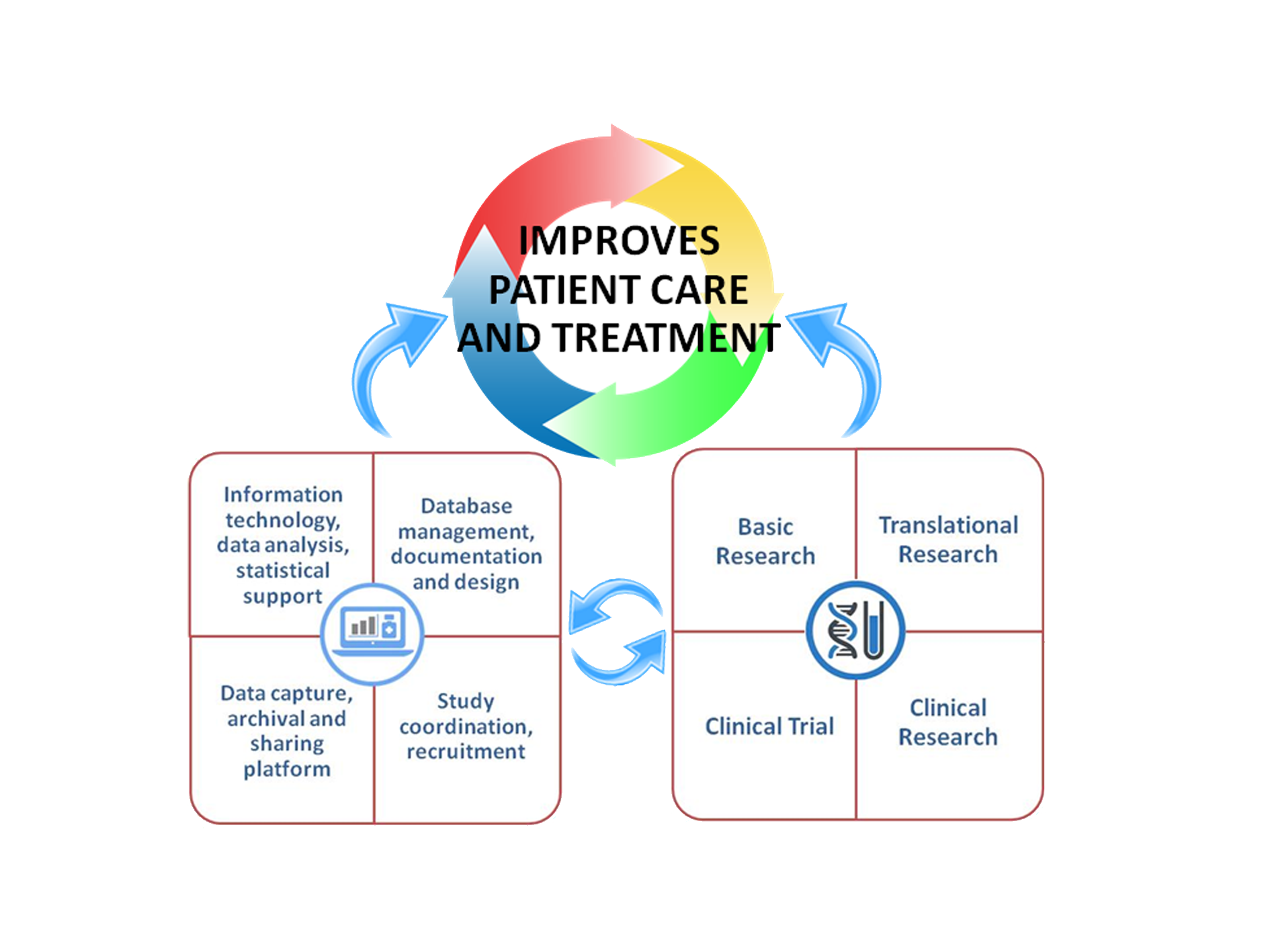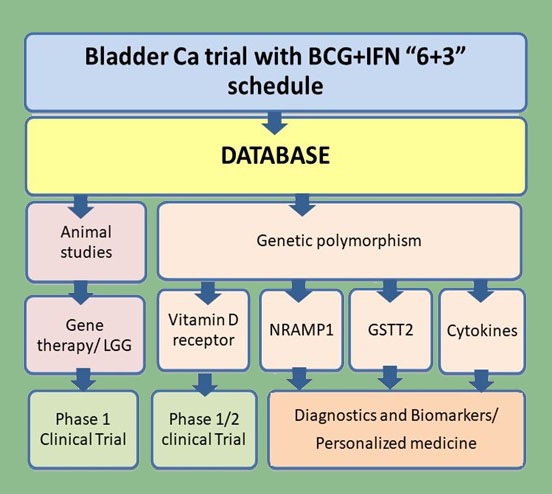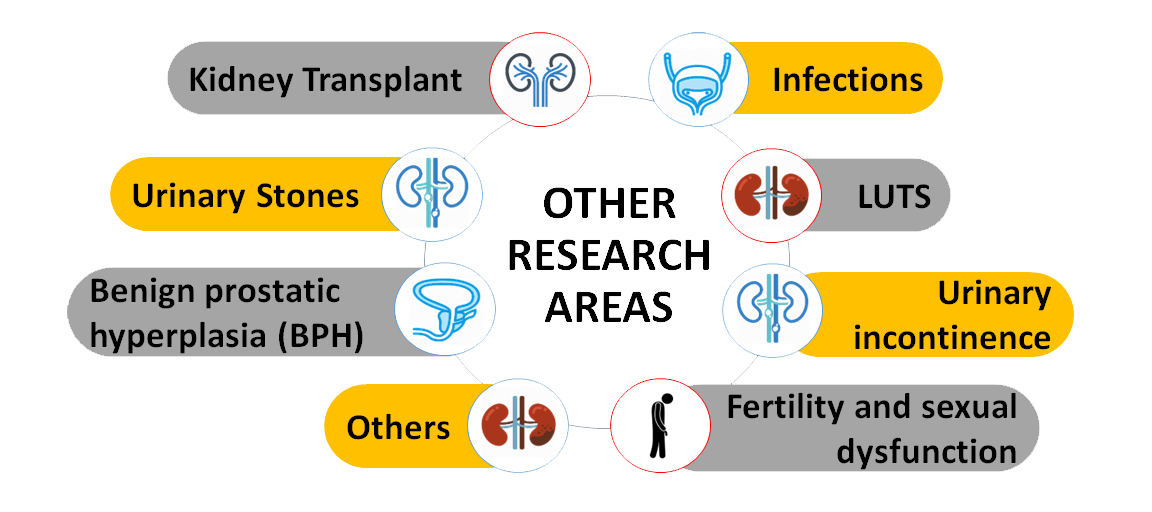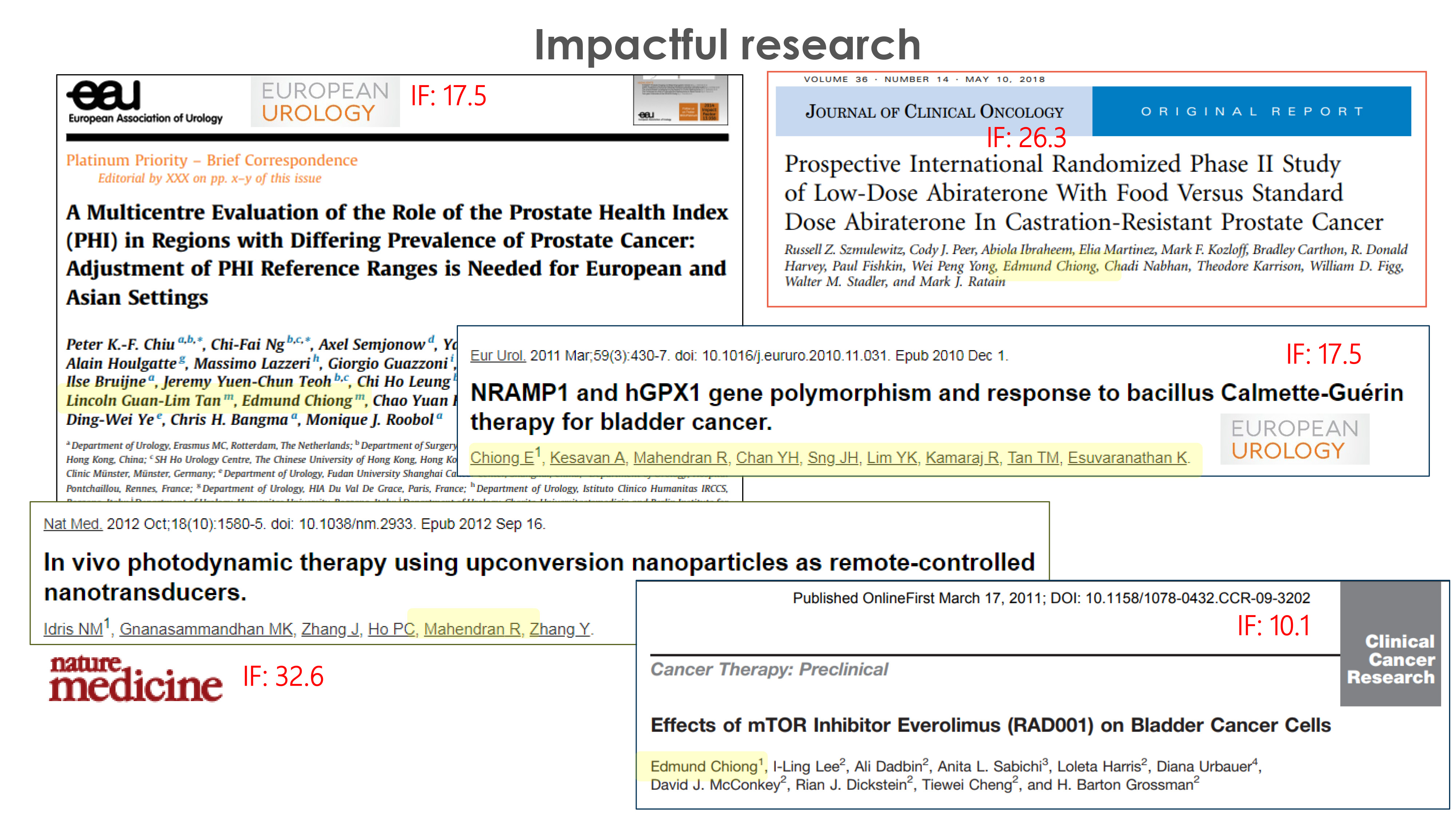Our vision is to improve patient care and treatment by translating research into clinical practice.

Our research approach has focused on
Research Focus on Cancer
In the Department of Urology, there are three key areas of cancer research: basic research (molecular markers, lab-based models), clinical and translational research (medical devices, novel techniques, diagnostics), and clinical trials (imaging techniques, new therapies).
For study protocols, please click on the studies listed below.
We are a regional leader in the clinical management of prostate cancer. NUH Urology department has participated in landmark trials such as PROSPER and PREVAIL for castrate-resistant metastatic prostate cancer and is at the forefront of advancing clinical practice in therapy and diagnostics for prostate cancer. The assessment of abiraterone dose reduction and response in a Phase I clinical trial for patients with advanced prostate cancer is ongoing as well as the development of nanogels to improve prostate cancer therapy. For diagnostics, improving biopsies or verifying less invasive methods of detection such as liquid biopsy are among the studies conducted.
The bladder cancer research laboratory is incorporated in the clinical department, providing a closely integrated team with clinical care, research and clinical trials expertise. Besides providing regional expertise in the management of non-muscle invasive bladder cancer using intravesical BCG therapy, the team performs translational research on new diagnostic tools and treatments such as gene therapy and lactobacillus-based therapy.

In 1995, we were the first to set up a multicentre clinical trial to improve BCG immunotherapy for Bladder Cancer. This trial generated a database (clinical data and DNA bank) that was the foundation which promoted the search for new therapies and identification of new markers
Bladder cancer patients do not all respond well to the standard BCG immunotherapy. BCG failures are more likely to have disease progression. Therefore, our team is engaged in developing novel therapies for bladder cancer using an orthotopic murine model of bladder cancer. This comprises the development of novel immunotherapeutic agents such as Lactobacillus rhamnosus GG and extracellular vesicles; identification of the cause of poor response to BCG immunotherapy (eg. single nucleotide polymorphisms and methylation), improving the response using combination therapeutics (clinical trials with Vitamin D and BCG); and the improvement of response to chemotherapeutic drugs using nanoparticles. The latter projects were performed in collaboration with the Departments of Biomedical Engineering, Chemical and Biomolecular Engineering and Electrical and Computer Engineering, and the Institute of Health Innovation and Technology in NUS. Nanocarriers with the ability to package cytotoxic drugs and with targeting properties to ensure delivery to tumors have shown promising results in mice. Development of a miniaturized implantable wirelessly powered light-emitting diode as a light source for photodynamic chemotherapy using glycosylated nanocarriers carrying chlorin e6 and gemcitabine elaidate greatly reduced the tumor burden in mice with orthotopic bladder cancer and reduced the need for expensive devices for photodynamic therapy.

Other Research Areas
Leaders in Clinical Practice.
The Department of Urology has a long history of high impact and award winning research, many of which are ready for translation into clinical practice. The Department of Urology is pioneering changes in clinical management through research.
